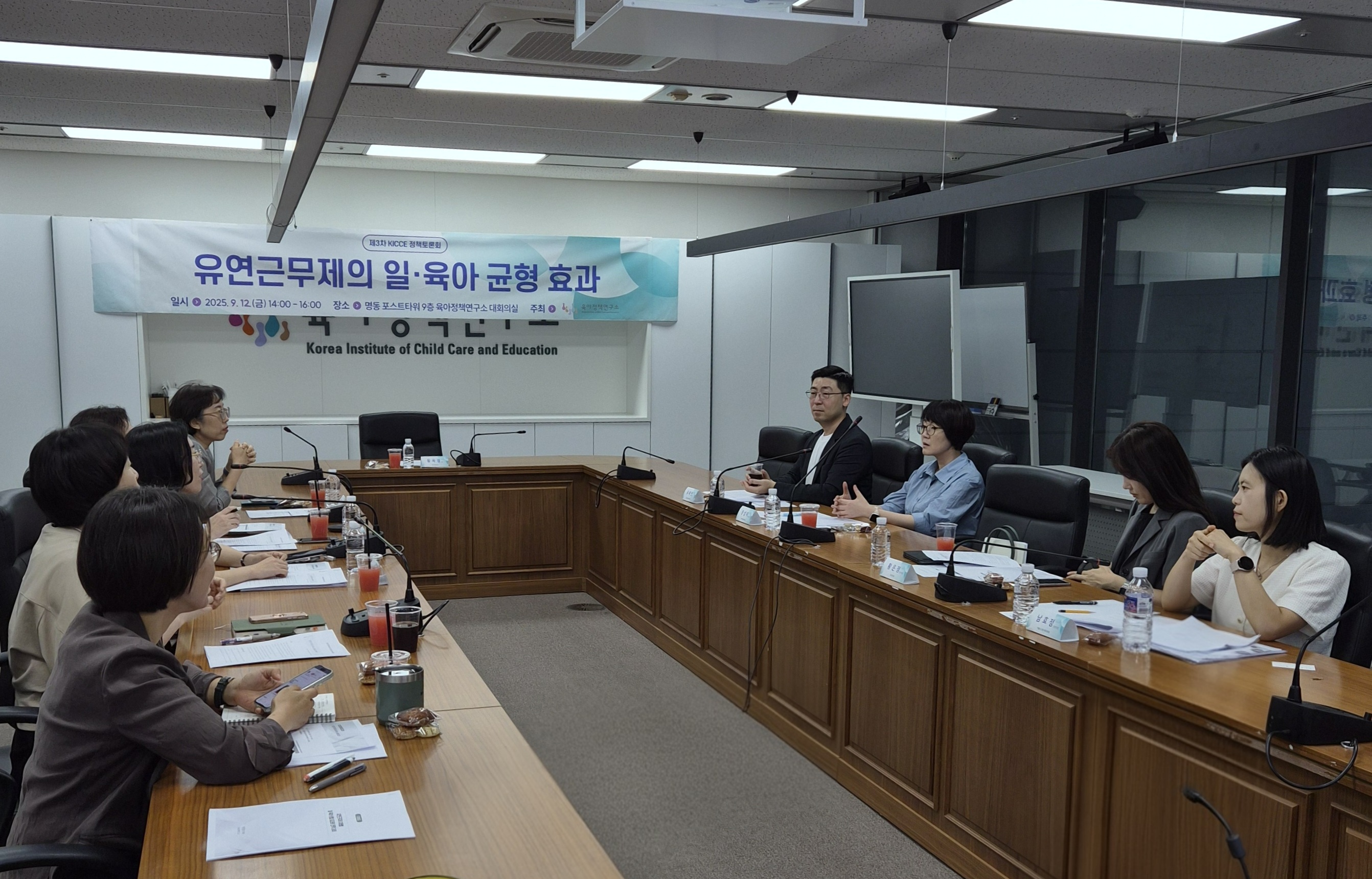Events
- Events
- Seminars
Seminars
- Date
- 2025.09.17
- Writer
- 주송희
- Hit
- 4
The Korea Institute of Child Care & Education (KICCE) held the 3rd KICCE Policy Forum on “The Effects of Flexible Work Arrangements on Work-Childcare Balance” on Friday, September 12, 2025, at 2:00 PM in the main conference hall on the 9th floor of the Myeong-dong Post Tower. This forum was arranged as part of the 2025 ad hoc project “Analysis of the Effectiveness of Flexible Work Arrangements for the Compatibility of Work and Childcare” and was conducted to share related research findings and exchange views among academic experts.
The keynote presentation, given by Research Fellow Eun Jung Park, was titled “Effects of Types of Flexible Work Arrangements on Work-Childcare Compatibility and Policy Tasks.” Using data from the 2024 Korea ECEC Panel Study and the 2024 Survey on Work Environments of Parents with Infants during the Childcare Period, she presented empirical analysis results. The analysis showed that reduced working hours and flexible workplace arrangements had positive effects on satisfaction with work-life balance and on work-childcare compatibility. In particular, reduced working hours were effective in securing time for child care. Based on these findings, she proposed three major policy goals — strengthening the right to flexible work, revitalizing support for flexible work arrangements, and improving company operations — along with eight policy tasks, including institutionalizing the right to request flexible work, raising the upper limit of childcare leave benefits during reduced working-hour periods, and building infrastructure for telework and remote work.
The designated discussion was moderated by Senior Research Fellow Eun Seol Kim (Director, Office of Fertility Support Policy Research, KICCE), and the panel included Professor Jaeeon Yoo (Gachon University), Research Fellow Sungmi Jung (Korean Women’s Development Institute), Research Fellow Eun Jung Hwang (Gyeonggi Research Institute), and Specialist Hyo Jeong Nam (Division of Work-Life Policy Coordination, Presidential Committee on Ageing Society and Population Policy). The discussion covered issues such as the current use of flexible work arrangements, disparities by gender and company size, improving corporate culture, building institutional infrastructure, and expanding male workers’ participation.
KICCE expects that through this policy forum, it will contribute to formulating policy alternatives to enhance the effectiveness of flexible work arrangements for work-childcare compatibility, as well as to strengthening institutional foundations and increasing applicability in practice.

- PREV
- KICCE–Japan International Cooperation Seminar
- 주송희
- 2025.09.17
- NEXT
- No next article.